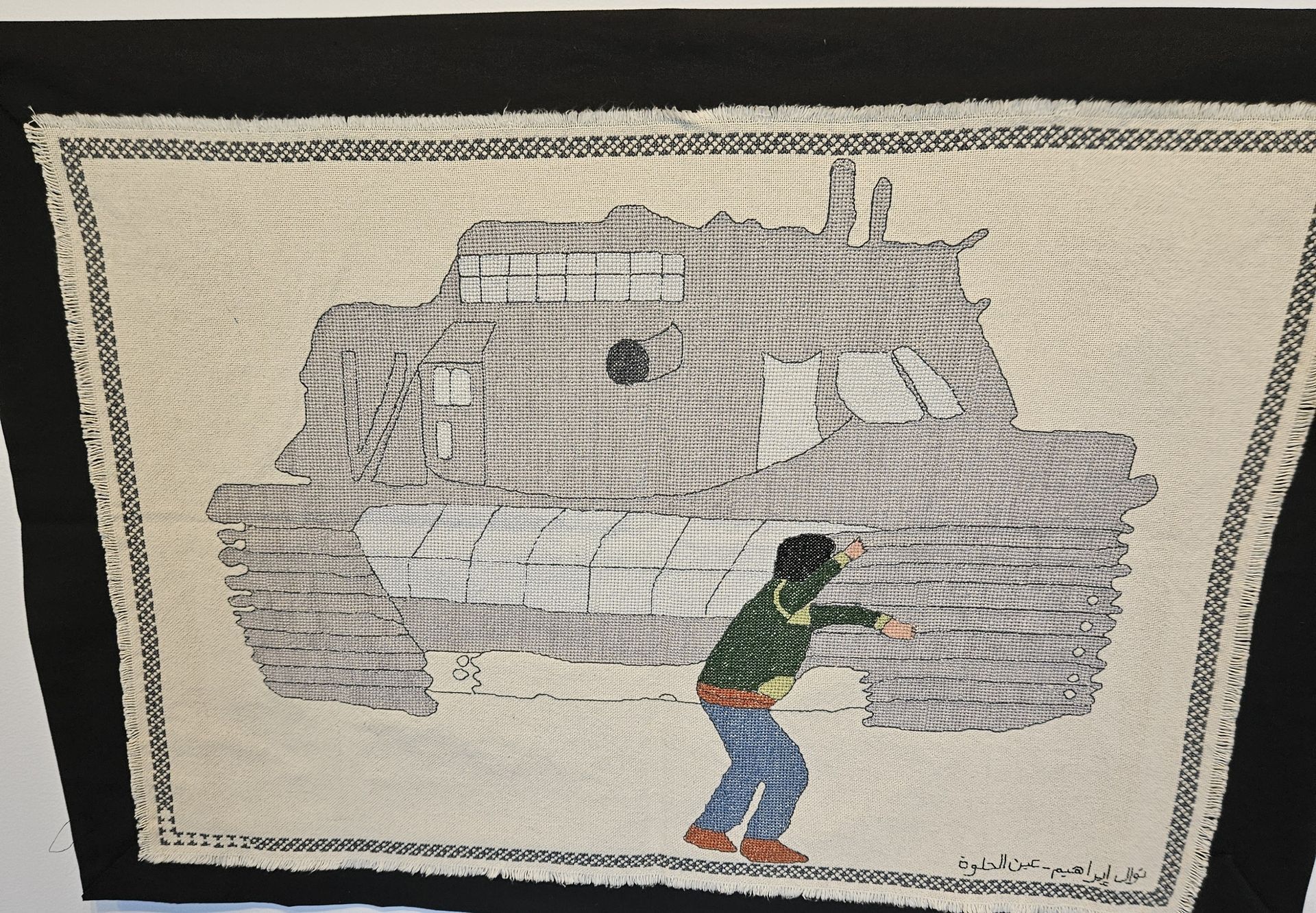
Beyond Welfare - UBI

Updated & Re-Issued Post on
Guaranteed Livable Income / Universal Basic Income for Canadians
Published first in May 18, 2022, this "Beyond Welfare - UBI" post is being republished today because on Tuesday, October 17, 2023, at 9 a.m. the matter of Guaranteed Livable Income or Universal Basic Income will be the topic of discussion in the relevant Canadian Senate committee. I will be attending to add my voice to this progressive, faithful, and "common sense" proposal.
Through the initiative of two parliamentarians, Senator Kim Pate and NDP MP Leah Gazan, with the backing of more than 25,000 Canadian petitioners, including former Conservative Senator Hugh Segal, former independent Senator and past Moderator of the United Church of Canada The Very Rev. Lois Wilson, and the United Church as a denomination (see the UCC website for more information: https://united-church.ca/social-action/act-now/create-guaranteed-livable-income-program), this visionary legislation is winding it way through the Parliamentary maze as bill S-233 and, eventually, as bill H-223. If passed by the two houses, it would require the Minister of Finance within one year to create a Canada-wide framework for the implementation of a Guaranteed Livable Basic Income.
My blog post below features some of the virtues of such a proposal. I was moved by Rutger Bregman's convincing book " “Utopia for Realists – How We Can Build the Ideal World” (Littlebrown and Company, 2014 & 2017. ISBN 978 0 316 47191 6.) and I'm no economist! But it just makes sense as a way of reducing poverty and decreasing bureaucratic barriers to better living conditions for many.
Here is the statement of the current Moderator of the UCC issued March 2023: (Creative Commons attribution):
The Right Rev. Dr. Carmen Lansdowne Calls for a Guaranteed Livable Income for All
Moderator's Statement Supporting a Guaranteed Livable Income
Friends, I’m here today to invite you to join The United Church of Canada, its networks and partners, in calling on Canada to ensure a guaranteed livable income for all in our country.
When we talk about a guaranteed livable income, use of “guaranteed” signals a focus on ensuring a base level of income for all. Emphasis is on its being available to anyone below a certain income level rather than necessarily paid out to everyone and then clawed back. The use of “livable” signals an income that enables people to live with dignity, not just stay alive.
When the pandemic first happened, we often heard the phrase “We are all in the same boat.” In fact, we are not all in the same boat. Inequities that existed long before COVID have been exacerbated since the onset of the pandemic.
In 1995, when Marion Best was Moderator of the United Church, she wrote a letter with all 13 Conference Presidents and the Leading Elder of the All Native Circle Conference naming the unravelling of Canada’s social safety nets at that time, and urging communities of faith to reflect and act on what they called then “the growing war against the poor in society.” Canada’s current social welfare system continues to fail to recognize the value of all persons, the work and contributions of all, denying the dignity of our common humanity.
The reality is that while there have been some very minimal baseline gains in poverty reduction over the past decade, there are recent statistics that show disturbing trends with increases in unmet housing needs, food insecurity, unmet healthcare needs, low literacy and numeracy, and slight year-over-year decreases in the median hourly wage.
Even the temporary wage supports put in place in the first two years of the pandemic were only set at 80 percent of the minimum individual need for survival at the time. And those supports were in many cases at least double our current provincial income supports for the poorest in society.
In addition, artists, caregivers, and workers in our precarious gig-economy struggle with inadequate incomes that suck the time, energy, and health from those with the fewest resources. These realities contradict the very justice and peace God envisions for creation.
Therefore, we call for a guaranteed livable income that implements a structure of justice-making and justice-keeping that no longer excuses, rationalizes, and tolerates poverty. We call for a system that expresses a fundamental, fair level of income security for all, as did the early Christians who shared their resources so there was no need among them. (see Acts of the Apostles chapter 2 ,verses 37-47)
~ ~ ~ ~ ~ ~ ~~ ~ ~ ~ ~~ ~ ~ ~ ~ ~
Original Pilgrim Praxis Blog Post published March 2022:
Times Change
Back in the “good old days” people used to be expected to work as many as 60 hours a week, starting when they were still children and ending when they were killed on the job (safety requirements were an expensive, unnecessary luxury, right?) or just wore out.
If you were poor, it was, of course, because you were lazy and not adequately motivated to get ahead. The fact that you couldn’t go to school because you had to work to eat and pay the rent was just another excuse.
Attitudes
Welfare and the “nanny state” just fed into the sloth culture by providing charity where it really wasn’t deserved. “THEY just smoked and drank it away anyway! So why waste money on THEM!” Monitoring the abuse of “welfare” was crucial to keep unnecessary government costs in check – the real job of social workers is to surveille THOSE abusers of the system and report them to law enforcement.
Oh, really? In an under-funded and disrespectful system where staff are waiting for clients to fail - too many suspicions become reality. “In fact, conservative criticism of the old nanny state hits the nail on the head,” says Rutger Bregman in his master work “Utopia for Realists – How We Can Build the Ideal World”. “The current tangle of red tape keeps people trapped in poverty. It actually produces dependence.” ( p.96.) [Thanks to Carolyn Boyer for bringing this resource into my viewfinder!]
Political conservatives might be inclined to crack the whip and increase the penalties for cheats (usually fewer than 5%). As an attentive Calvinist, I’ve never noticed that prisons generate a lot of positively-oriented industrious workers. Ontario’s Ford government killed a experiment testing a better way in 2018. Not all conservatives are equally blinkered. Former Senator Hugh Segal had a better idea. Rutger Bregman, a Dutch observer-writer makes the alternative to welfare and related “programmes” understandable in his joy-to-read volume.
Another Way
The better way? “Mincome” (unconditional basic income, universal basic income, guaranteed annual income, or guaranteed livable income) is the pilot experiment that was launched in Dauphin, Manitoba in 1974 by the Edward Schreyer NDP government with federal support from P.E. Trudeau. The town's 13,000 residents were assured of an annual income of $19,000 for a family of four.
The pilot program endured for four years. Then a Progressive! Conservative provincial government led by Sterling Lyon was elected. For typical reasons, Lyon with then Prime Minister Joe Clarke cancelled the program, but before the data generated had been analyzed to see what effect this social experiment had on people’s lives.
Of course, Mincome residents all turned into aimless drunks on drugs, had sex orgies producing unwanted children, and heaven knows what other laziness and immorality transpired - together putting more pressure on the already over-burdened health, social, and police/correctional services systems, all working hard to keep residents on the straight and narrow. Right?
Benefits Noted
Well actually, no! Analytical research was subsequently carried out by the University of Manitoba’s Prof. Evelyn Forget using the many boxes full of data, well hidden in the archives. “What really happened was precisely the opposite. Young adults postponed getting married, and birth rates dropped. Their school performance improved substantially: the “Mincome cohort” studied harder and faster. In the end, total work hours only notched down 1% for men, 3% for married women, and 5% for unmarried women. Men who were family breadwinners hardly worked less at all, while new mothers used the cash assistance to take several months’ maternity leave, and students to stay in school.” (Bregman, p. 17, citing Evelyn Forget, “The town with no poverty” http://public.econ.duke.edu/~erw/197/forget-cea%282%29.pdf)
“Forget’s most remarkable finding, though, was that hospitalizations decreased by as much as 8.5%. Considering the size of public spending on healthcare in the developed world, the financial implications were huge. Several years into the experiment, domestic violence was also down, as were mental-health complaints. Mincome had made the whole town healthier. [Prof.] Forget could even trace the impacts of receiving a basic income through to the next generation, both in earnings and in health.” (loc.cit.) Cost-benefit analysis must take place over a longer period of time and from varying perspectives to fairly assess UBI.
Bregman does a much better job of explaining why the Dauphin experiment can be extrapolated into larger society. Read the book – it’s an eye-opener that will, I think, make you too want to remove blinkers asap.
United Church GLI
If book learning isn’t your thing, try the following online link
https://united-church.ca/search/all?search_api_fulltext=Guaranteed+livable+income
Trust the United Church of Canada to be about utopian dreams! A whole section of the official website focusses on what it calls a “guaranteed livable income.” Included is a prayer, stories that demonstrate need and impact, a letter from the Moderator Richard Bott, a study guide and suggestions for group conversation, and a grassroots effort to get a petition – supported by members of all major political parties - pressing parliament to support another experiment in Prince Edward Island.
Maybe UBI, GAI, Mincome isn’t just a utopian dream – maybe it’s actually a smart, efficient, effective move to make life more livable for more people at less cost – not just monetarily, but in terms of the costly harm poverty and financial insecurity do to children and teens, and young adults, and parents struggling to keep head above economic waters threaten to overwhelm, and singles on their own.
I think so – it makes sense to me. One result would be that we have more people freed from mind-deadening, soul destroying jobs monitoring others’ behaviour – the red-tape will be cut because basic needs are met. Fewer people will have anxiety complaints that burden health care, and more people will pursue educational opportunities to enhance their skills and knowledge. Some will actually choose to work part-time at things that give them joy and fulfillment, worn down folks might just take wisdom breaks or travel – all opening up new work opportunities for other people needing work.
If after thinking about it, you want to act on this idea – this utopian dream – BTW utopias don’t arrive in this life, they keep drawing visionary people toward themselves – like the Kindom of Heaven or the Reign of God – and when it is filled with empathy, compassion, generosity, justice, hope and community – life is better and “abundant life” reaches more people.
Action
Oh yes, if you want to act: waiting for you there is a petition initiated by Mary Sanderson and sponsored by NDP MP Leah Gazan (Winnipeg Centre). You may want to take the opportunity to share it, and sign it yourself calling on the federal government to support the P.E.I. guaranteed livable income demonstration experiment: https://petitions.ourcommons.ca/en/Petition/Details?Petition=e-3987. See also UBIwork.ca. The United Church site also has an email-writing campaign.
Thanks
Someday our children or grandchildren may thank us for having the foresight and the counter-intuitive wisdom to use large amounts of money to end poverty and foster human well-being for a healthier society, and spend less on useless work and dispensable things. They may know that because of our decision for UBI, benefits far outweighed the costs, and carrots were more effective and productive than sticks in creating flourishing societies.

